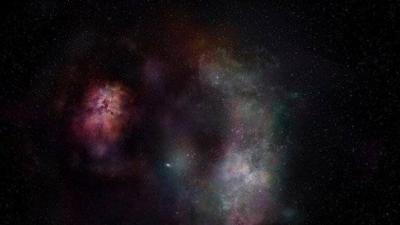Astronomers have discovered an unusual and repetitive signal coming from a distant galaxy, manifesting as a burst of radio waves in a pattern resembling heartbeats. Scientists describe it as a fast radio burst, or powerful and mysterious energy outbursts originating from deep space, which have yet to be fully understood or analyzed. According to the researchers, these bursts are peculiar because they do not conform to the usual speed, lasting up to three seconds instead of the milliseconds typical for fast radio bursts (FRBs).
Fast radio bursts are high-energy astronomical phenomena of unknown origin, appearing as transient radio pulses that last only a few milliseconds. In this new discovery, scientists observed bright flashes that appear in a cyclical manner, a type rarely found in the universe, with energy bursts repeating every 0.2 seconds.
Postdoctoral researcher Daniel Micheli from the Massachusetts Institute of Technology (MIT) Kavli Institute for Astrophysics and Space Research stated, "There aren't many things in the universe that emit strictly periodic signals; examples we know of in our galaxy are pulsars and magnetars that rotate and produce a lighthouse-like beam." He added, "We believe this new signal could be a magnetar or a pulsar."
The signal is designated FRB 20191221A, currently the longest fast radio burst signal with the clearest periodic pattern detected so far. It originates from a galaxy several billion light-years away from Earth, and scientists consider this source to be a mystery, although astronomers suspect that the signal may arise from a wireless pulsar or a magnetar.
The team hopes to detect more periodic signals from this source, which could potentially be used as an astronomical physical clock. For instance, the frequency of the pulses and how it changes as the source moves away from Earth could measure the rate of cosmic expansion.
In December 2019, the Canadian Hydrogen Intensity Mapping Experiment (CHIME) captured a possible fast radio burst signal, immediately catching the attention of researcher Micheli as he was sifting through incoming data. He remarked, "That was unusual." Micheli continued, "It wasn't very long, lasting about three seconds, but there were remarkably precise periodic peaks, emitting every fraction of a second 'bump, bump, bump' like a heartbeat." He concluded, "This is the first time the signal itself has been periodic."




